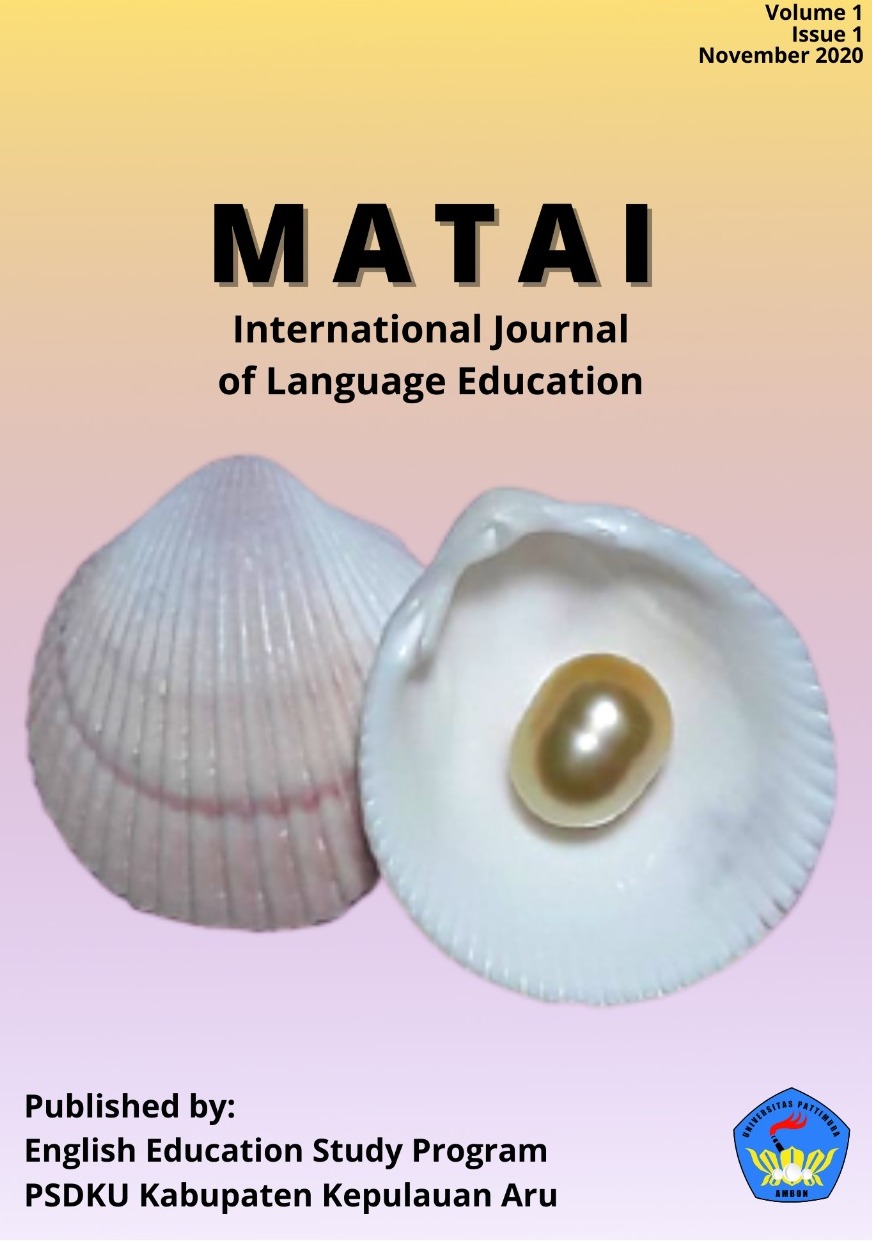Study on Speaking Problems and Psychological Factors Encountered by Students in Developing Their Speaking Skill at SMA Kristen Dobo, Aru District
Abstract
Developing speaking skill as one of productive skill is crucial for EFL students, and it can’ be denied that most students still constraints with developing that skill that covering their general speaking problems and psychological factors. Survey study under quantitative research was applied to conduct the study. The setting of the study was SMA Kristen Aru and 70 students were involved as the sample and 6 selected students were also participated to be interviewed to support the data. Descriptive quantitative and qualitative ways were done to analyze the findings. The research findings revealed that the common problems faced by the students in speaking skill were 1) lack of vocabulary, incomprehension in mastery grammar, lack of practice, the environment did not support them to speak and always speak in mother tongue. Whereas, the most psychological factors affected the students’ speaking problems were low motivation, felt afraid in making mistakes, felt tense and nervous, unconfident in speaking presentation, and felt confuse with their thoughts. From these findings, some proposed new insights such as varied teaching strategies in speaking skill, give more chance to practice their English inside and outside the classroom, always motivate them and encouraged them to practice their English and provide any challenges tasks for helping students minimize their common problems and psychological factors in speaking skill.
Downloads
Copyright (c) 2020 Matai International Journal of Language Education

This work is licensed under a Creative Commons Attribution 4.0 International License.
Authors who decide to share their articles with this journal must agree with these requisites:
|
1. The author, as the copyright owner, gives Matai the right to publish their work 2. Authors can share their articles, but they have to use Matai's published version by acknowledging Matai as the source. 3. Authors are encouraged to share their work online in order to let people know about their articles which can lead to more citations of the published work. |



